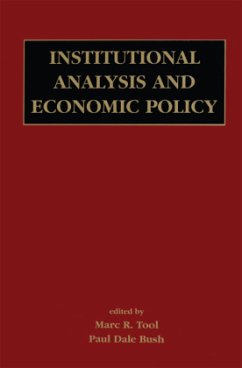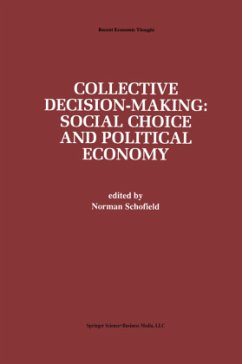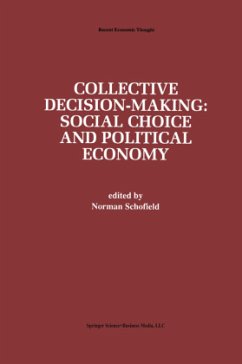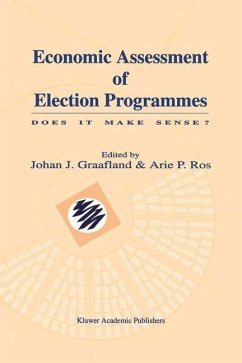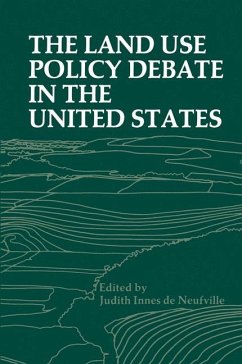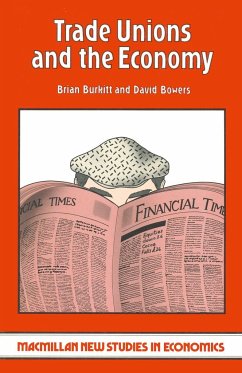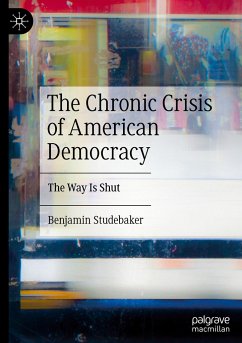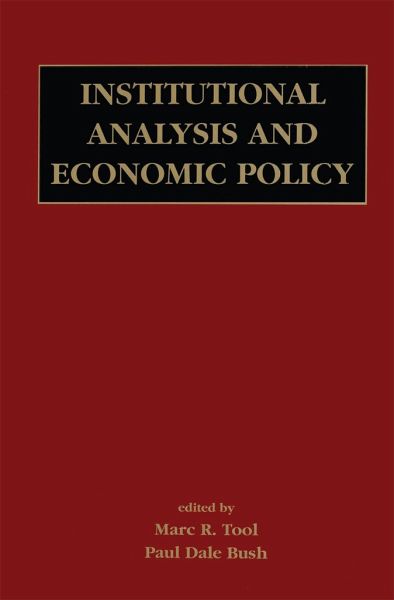
Institutional Analysis and Economic Policy
Versandkostenfrei!
Versandfertig in 1-2 Wochen
115,99 €
inkl. MwSt.
Weitere Ausgaben:

PAYBACK Punkte
58 °P sammeln!
The purpose of this volume is to demonstrate how contemporary institutional economic analysis can be applied to the resolution of economic problems. All of the essays in this book challenge the conventional wisdom in the problem areas addressed. They advocate policy positions that often run contrary to views widely held by academic economists and policy makers alike. The general literature of institutional economics is unorthodox, beginning with its methodological foundations and continuing through the kind of policy analysis found in these pages. The orthodox tradition in economics is commonl...
The purpose of this volume is to demonstrate how contemporary institutional economic analysis can be applied to the resolution of economic problems. All of the essays in this book challenge the conventional wisdom in the problem areas addressed. They advocate policy positions that often run contrary to views widely held by academic economists and policy makers alike. The general literature of institutional economics is unorthodox, beginning with its methodological foundations and continuing through the kind of policy analysis found in these pages. The orthodox tradition in economics is commonly characterized as "neoclassical economics." Neoclassical economics fosters the myth that only "the market" can efficiently allocate a society's economic resources and equitably distribute its income. It provides the intellectual defense for in which "free markets" are championed over democratic capitalist ideology policy formation, which it contends is neither efficient nor equitable. For both professional economists and policy makers of a conservative political persuasion, neoclassical economics writes the script for a morality play in which the market is the "good guy" and the government is the "bad guy." As such, it undermines the belief that free societies can enhance economic welfare through the use of democratic processes in the formulation of economic policies.



